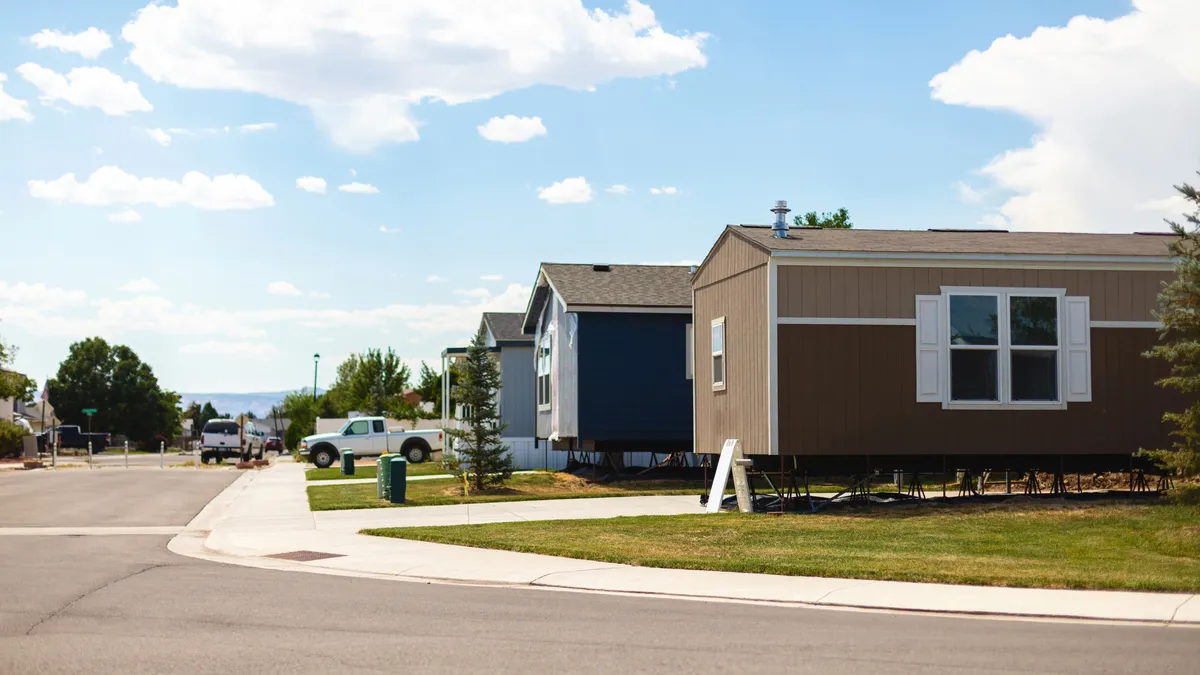Dive Brief:
- Chicago Mayor Lori Lightfoot announced commitments to a 36% increase in funding for homelessness prevention and a 19% increase in the number of affordable housing units available to renters in the lowest income brackets.
- The city's Flexible Housing Pool (FHP) will get a $5 million increase to house more than 200 youth experiencing homelessness or housing instability. An additional $5 million from the corporate fund will go toward the Low-Income Housing Trust Fund (LIHTF) for 520 new affordable housing units.
- The investment package aims to meet three goals: a 25% reduction in youth homelessness and housing instability; expansion of the LIHTF by 19% for a total of 3,200 households; and building on the work of city partners who work to connect an estimated 15,000 to 20,000 homeless individuals with services annually.
Dive Insight:
The package initiative specifically targets certain populations: young people aged 18 to 24 experiencing homelessness and renters who make up to 30% of the area median income. The city currently has more than 800 youth in that age range, including those aging out of the foster care system or who were previously incarcerated.
"This increase is an important step in the direction of better providing for Chicago’s most vulnerable residents and strategically targeting populations and geographies long lacking in affordable housing, thus helping to address the City’s longstanding racial and economic segregation," Chicago Department of Housing Commissioner Marisa Novara said in a statement.
The homelessness mitigation initiative focuses on the FHP, which aims to quickly identify appropriate services for individuals with complex needs who frequently find themselves in "crisis systems" such as emergency rooms, shelters or jail. Chicago's FHP launched in April and was modeled on initiatives in other cities that reportedly showed a 96% success rate with participants remaining housed one year after placement.
Last fall, Chicago leaders announced their intention to put $1.1 million in funding into the 2019 budget for homelessness mitigation. Some of the money went toward a pilot program to transition individuals living in encampments to supportive housing. Prior to that effort, the city had found itself among the likes of San Francisco and other cities that created controversy by instructing police and/or city staff to remove encampments.
Mirroring a trend occurring in other U.S. cities, Chicago's recent housing efforts have been holistic. Leaders seek long-term, comprehensive solutions that get to the root of the problem and ensure individuals will stay in housing, as opposed to simply relying on homeless shelters as a solution.
Both the homelessness mitigation and affordable housing creation plans are steeped in equity. The affordable housing initiative is designed to connect the lowest-income households with more resources by targeting areas lacking in affordable housing and where gentrification has created affordability issues.
During her budget address on Wednesday, Lightfoot talked about the new housing funding to which the city committed. She sent a clear and direct message to the for-profit and community-based developer community: "We need you to step up in partnership to help us meet this affordable housing crisis head on."











